In the realm of personal hygiene, the product that rarely comes under scrutiny for its environmental impact is toilet paper.
The fact that we use it in massive quantities around the world, yet its production often relies on non-renewable resources, is a subject that warrants attention.
One sustainable alternative that has been gaining a foothold in the market is bamboo toilet paper.
This essay seeks to inform on the impetus behind this new trend, exploring not only its contribution to sustainability but also its health benefits and economic impact.
Bamboo Toilet Paper VS Recycled-A Comparison Table
| Aspect | Recycled Toilet Paper | Bamboo Toilet Paper |
|---|---|---|
| Sustainability | Made from post-consumer paper waste, reducing the need for new trees. | Made from a rapidly renewable resource (bamboo), which grows quickly. |
| Resource Usage | Reduces the demand for fresh trees and water, but still requires energy for processing. | Requires less water and no deforestation but may involve energy-intensive production. |
| Softness | Typically slightly less soft than virgin wood toilet paper. | Known for its soft and silky texture, often compared to premium brands. |
| Strength | Generally weaker and may require more sheets for the same task. | Tends to be stronger and more durable. |
| Biodegradability | Biodegradable and breaks down more easily in septic systems. | Also biodegradable, but breakdown speed can vary. |
| Price | Often more affordable due to the use of recycled materials. | May be pricier due to the cost of bamboo production and processing. |
| Environmental Impact | Low carbon footprint, reduces landfill waste, but can have energy consumption. | Low carbon footprint, minimal deforestation, and potential for energy-efficient production. |
| Availability | Widely available in stores and online. | Becoming more accessible but may have limited availability in some areas. |
Bamboo toilet paper is a sustainable alternative to traditional toilet paper, as it’s made from renewable bamboo resources. It’s eco-friendly, biodegradable, and soft, offering a more environmentally conscious choice for personal hygiene. Many people choose bamboo toilet paper to reduce their environmental impact.
What is Bamboo Toilet Paper?
Bamboo toilet paper is an eco-friendly alternative to traditional toilet paper, which is typically made from trees.
Named after its primary ingredient, bamboo toilet paper is a type of tissue paper that is produced from bamboo instead of trees.
Bamboo, which is a type of grass, grows much faster than trees, making it a more sustainable source of raw material for toilet paper.
Due to its low impact on the environment and its soft, durable texture, bamboo toilet paper is a highly popular product among discerning consumers who prefer green products.
Characteristics of Bamboo Toilet Paper
Bamboo toilet paper has a variety of characteristics that make it a good alternative to traditional toilet paper.
It is often softer, stronger, and more absorbent than regular toilet paper because of the unique properties of bamboo fibers.
Like its traditional counterpart, bamboo toilet paper can be manufactured in various grades, including one-ply, two-ply, and multi-ply options.
However, bamboo toilet paper stands out because it’s hypoallergenic, making it a good choice for people with sensitive skin.
How is Bamboo Toilet Paper Made?
Bamboo toilet paper is made by processing bamboo fibers into a pulp, which are then pressed into sheets of paper.
The bamboo used for this purpose is often a species known as moso bamboo, which can grow up to a meter per day, making it an extremely renewable resource.
The bamboo is harvested, transported to a mill, and broken down into individual fibers using a high-pressure steaming process.
The fibers are then bleached to remove any color, pressed into sheets, dried, and cut into rolls of toilet paper.
Depending on the manufacturer, the toilet paper may be unbleached (resulting in a slightly off-white color) or bleached (rendering it pure white). Some brands also add a thin layer of aloe or other moisturizing agents to increase the product’s softness.
Different Types of Bamboo Used
| Type of Bamboo | Sustainability | Softness | Strength | Absorbency | Eco-Friendly Packaging |
|---|---|---|---|---|---|
| Moso Bamboo | Highly sustainable, grows fast | Soft and gentle on the skin | Strong and durable | Good absorbency | Often packaged in recyclable materials |
| Guadua Bamboo | Rapid growth and renewability | Moderately soft | Very strong and sturdy | Decent absorbency | Packaging may vary, but can be eco-friendly |
| Black Bamboo | Sustainable, but slower growth | Moderately soft | Strong, but not as much as Moso | Good absorbency | Packaging options vary |
| Golden Bamboo | Fairly sustainable | Moderately soft | Relatively strong | Decent absorbency | Packaging may not always be eco-friendly |
| Himalayan Bamboo | Sustainable | Soft and plush | Strong and durable | Excellent absorbency | Packaging varies, may be eco-friendly |
The most commonly used bamboo for toilet paper production is moso bamboo, prized for its rapid growth and robustness.
It is a bamboo species that can reach full maturity within three to five years, which is significantly faster than the 20-30 years it typically takes for a tree to mature.
Other bamboo species, such as the giant bamboo and the black bamboo, could also be used, but they do not offer the same combination of quick growth and strength as moso bamboo.
Is Bamboo Toilet Paper Better?
Bamboo toilet paper is considered better for the environment because bamboo is a rapidly renewable resource and requires fewer chemicals and water compared to traditional toilet paper made from trees. It is also often softer and more durable, providing a more comfortable and sustainable option for personal hygiene. However, individual preferences and priorities may vary.
There’s a growing consensus among consumers, green product enthusiasts, and environmental activists that bamboo toilet paper is better than traditional toilet paper.
This conclusion is primarily due to its eco-friendliness and sustainability, given that bamboo grows much faster than trees and is a renewable resource.
From a usage perspective, it has softer and stronger qualities than many of its tree-derived counterparts, making it a more comfortable and durable option.
Additionally, it is hypoallergenic and less likely to cause irritation, thereby making it a suitable option for users with sensitive skin.
However, it’s important to remember that not all bamboo toilet papers are created equal. Consumers should carefully read the labels and do their research to ensure they are purchasing a truly eco-friendly product, as the process of turning bamboo into toilet paper can sometimes involve harmful chemicals.
In light of the overview
considering the aspects like cost and accessibility, bamboo toilet paper comes forth as an appealing alternative to the conventional type. It presents potential environmental advantages and an exceptional product quality.

Photo by billy_huy on Unsplash
Environmental Impact of Bamboo Toilet Paper vs Traditional Tissue Paper
| Aspect | Bamboo Toilet Paper | Traditional Tissue Paper |
|---|---|---|
| Material Source | Bamboo, a renewable resource | Trees, often slow-growing |
| Deforestation Impact | Minimal impact, bamboo regrows quickly | Significant impact, trees take years to grow |
| Water Usage | Requires less water to produce | Higher water consumption |
| Chemicals and Toxins | Typically produced with fewer chemicals | May involve more chemical processing |
| Energy Consumption | Lower energy required in production | Higher energy consumption |
| Biodiversity Preservation | Less habitat disruption | Potential habitat destruction |
| Biodegradability | Naturally biodegradable | May take longer to biodegrade |
| Carbon Footprint | Lower carbon emissions | Higher carbon emissions |
| Eco-Friendly Packaging | Often packaged in recyclable materials | Packaging varies in sustainability |
| Consumer Availability | Increasing availability | Widespread availability |
| Cost | Competitive pricing | Price varies, may be higher |
The Sustainable Nature of Bamboo Toilet Paper
In contrast to ordinary toilet paper, bamboo-based toilet paper emerges as the more eco-friendly option.
The reason behind this is largely due to the characteristics of bamboo. As a grass, bamboo has a rapid growth rate, reaching maturity within a span of three to four years.
On the other hand, trees utilized for traditional toilet paper take anywhere between 20 to 50 years to mature.
This makes bamboo a highly renewable source.
Carbon Footprint, Water and Wood Usage
The carbon footprint of bamboo toilet paper is also considerably lighter than that of regular tissue paper. Producing bamboo toilet paper requires less energy as compared to regular toilet paper, which translates into less greenhouse gas emissions.
Moreover, unlike the trees used for traditional toilet paper, bamboo can absorb carbon dioxide from the atmosphere even as it’s harvested, further reducing its carbon footprint.
Bamboo toilet paper is more water-efficient in its production process than its traditional counterparts. While exact figures vary, it’s estimated that bamboo toilet paper uses up to 30% less water than regular toilet paper.
In terms of wood usage, bamboo toilet paper does not require the felling of trees since bamboo is a grass. Conversely, traditional tissue paper uses millions of trees annually, contributing significantly to deforestation and loss of habitat for wildlife.
Disposal and Decomposability
Another key factor that makes bamboo toilet paper environmentally friendly is its disposability and decomposability.
Bamboo toilet paper is biodegradable and can break down naturally in a very short time, causing less damage to the environment.
On the other hand, regular toilet paper, particularly those made with bleaching agents and chemicals, can take a longer time to decompose.
For the disposal of bamboo toilet paper, it is essential to note that it does not lead to sewer or septic tank issues, as it breaks down just as easily and safely as regular toilet paper, if not more so. It is flushable and safe for most septic and sewer systems.
Chemical Usage in Production
The production of regular toilet paper usually involves the use of chemicals such as bleaches, formaldehyde, and de-inking agents.
These chemicals can harm the environment by contaminating water sources when they are disposed of recklessly.
Bamboo toilet paper, especially those that are unbleached, bypasses the need for these chemicals entirely, thereby reducing chemical pollution.
Why Choose Bamboo Toilet Paper?
If you’re interested in sustainable and eco-friendly alternatives, then bamboo toilet paper should be on your radar. It stands out for its light carbon footprint and lesser resource usage in production.
Notably, the fast-growing bamboo grass doesn’t contribute to deforestation since it can be harvested consistently.
Despite the need for enhancement in manufacturing and distribution aspects, it’s hard to deny the environmental benefits that bamboo toilet paper brings to the table.

The Health and Comfort Aspects of Bamboo Toilet Paper
The Hygiene Benefits of Bamboo Toilet Paper
Did you know bamboo toilet paper is also a hypoallergenic product?
This means it’s less likely to cause an allergic reaction, which makes it ideal for individuals with sensitive skin, allergies, and various skin conditions.
Bamboo toilet paper sets itself apart as it’s typically void of harsh chemicals like bleach and BPA that traditional toilet paper often contains. Such chemicals can irritate the skin or cause allergic reactions.
Therefore, beyond just being more environmentally-friendly, this type of toilet paper also offers unique advantages from a health perspective.
Skin-Friendly and Comfortable
The softness of bamboo toilet paper is a significant advantage, especially when compared to traditional types of toilet paper.
Bamboo fibers have a natural softness that allows for comfortable use.
This softness, coupled with the hypoallergenic qualities of bamboo pulp, provides an elevated level of comfort – especially crucial for individuals with sensitive skin.
These factors mean that bamboo toilet paper is not only a more sustainable solution but also a cosier one.
An Ideal Choice for Sensitive Skin
Since bamboo toilet paper is created without the use of harsh chemicals and with soft, hypoallergenic bamboo pulp, it is an ideal choice for those with sensitive skin.
It decreases chances of irritation or reactions caused by contact with chemical-laden traditional toilet paper.
Hence, this makes bamboo toilet paper a better, skin-friendly alternative.
The Non-irritating Factor of Bamboo Toilet Paper
Individuals with conditions such as eczema or psoriasis, as well as those with generally sensitive skin, would benefit significantly from switching to bamboo toilet paper.
Because of its hypoallergenic nature, it is non-irritating and is less likely to cause flare-ups or worsen existing skin conditions.
This is of particular importance for individuals who may have adverse effects from contact with commonly used chemicals in conventional toilet paper.
An Eco-friendly and Health-Friendly Approach
Switching to bamboo toilet paper offers various health benefits including hypoallergenic properties, softness, and adaptability for sensitive skin.
In addition to this, environmentally speaking, bamboo toilet paper is a substantially smarter choice.
Crafted from a sustainable resource and typically bio-degradable, it doesn’t only provide a more gentle and healthier option for individuals, but it also respects their wider responsibilities towards the environment.

Economic Impact and Availability of Bamboo Toilet Paper
Eco-friendly Alternative
When it comes to performance, bamboo toilet paper carries out the sanitization function effectively as traditional tissue paper while being softer to the touch.
Nonetheless, there can be a significant variation in the economic facets of bamboo toilet paper compared to traditional tissue paper in terms of price, accessibility, and availability.
Environmental Benefits
To begin with, bamboo toilet paper is typically more expensive than traditional tissue paper.
The increased cost is generally attributed to the eco-friendly benefits that bamboo toilet paper offers.
Bamboo grows much more rapidly than hardwood trees, requiring less land and water, and it is able to be harvested more frequently. It’s also free from pesticides and fertilizers. Therefore, the cost of production is somewhat higher, leading to a higher retail price.
While the cost may be higher, it’s important to realize that you are also purchasing a product that is far better for the environment.
Additionally, buying bamboo toilet paper supports sustainable farming practices and reduces deforestation, which could potentially save the consumer money in the long run in the form of reduced environmental impact fees or taxes.
Accessibility and Availability
Bamboo toilet paper is becoming more accessible as the demand for eco-friendly products grows.
Major retailers, both brick-and-mortar and online, have started to offer this alternative, and there are also many specialty outlets offering bamboo toilet paper.
However, it is still not as conveniently available as traditional tissue paper, which can be found essentially everywhere.
This is likely to change as more consumers start buying bamboo toilet paper, and suppliers broaden their product offerings to meet this demand.
Market Trends and Consumer Preferences
In terms of market trends, there has been a noticeable shift towards eco-friendly and sustainable products, with the bamboo toilet paper market increasing in parallel.
As more consumers become aware of the environmental impact of their purchasing choices, the demand for products like bamboo toilet paper is expected to grow significantly.
In terms of consumer preferences, many customers are willing to pay more for products that are sustainably and ethically sourced, as well as items that have a reduced impact on the environment.
Despite this, it cannot be ignored that for many people, the higher price of bamboo toilet paper does act as a deterrent.
A Viable Everyday Solution
To summarize, bamboo toilet paper, while currently more expensive and less readily available than traditional tissue paper, represents a sustainable and eco-friendly alternative.
It matches traditional toilet paper in functionality and softness, and surpasses it significantly in environmental impact.
The growing consumer demand for sustainable products indicates that bamboo toilet paper will likely become more common in the future.
Considering all these factors, bamboo toilet paper appears to be a viable everyday solution for those who prioritize environmental sustainability and are willing to pay a bit more.

Having dissected the various aspects of bamboo toilet paper, it’s clear that the benefits of this sustainable product stretch far beyond just the environmental aspect.
Its hypoallergenic properties and softness make it an optimal choice for those with sensitive skin. While it may come with a slightly higher price point, the growing market trends and accessibility seemingly make it a worthy investment for our personal health and the planet.
Beyond just being a bathroom product, bamboo toilet paper serves as part of a larger conversation about conscious consumer choices and our responsibility in caring for the earth.
Related Questions
[faq-schema id=”16248″]




![How to Remove Crystallized Urine [Explained]](https://homepander.com/wp-content/uploads/2022/02/How-To-Remove-Crystallized-Urine.jpg)
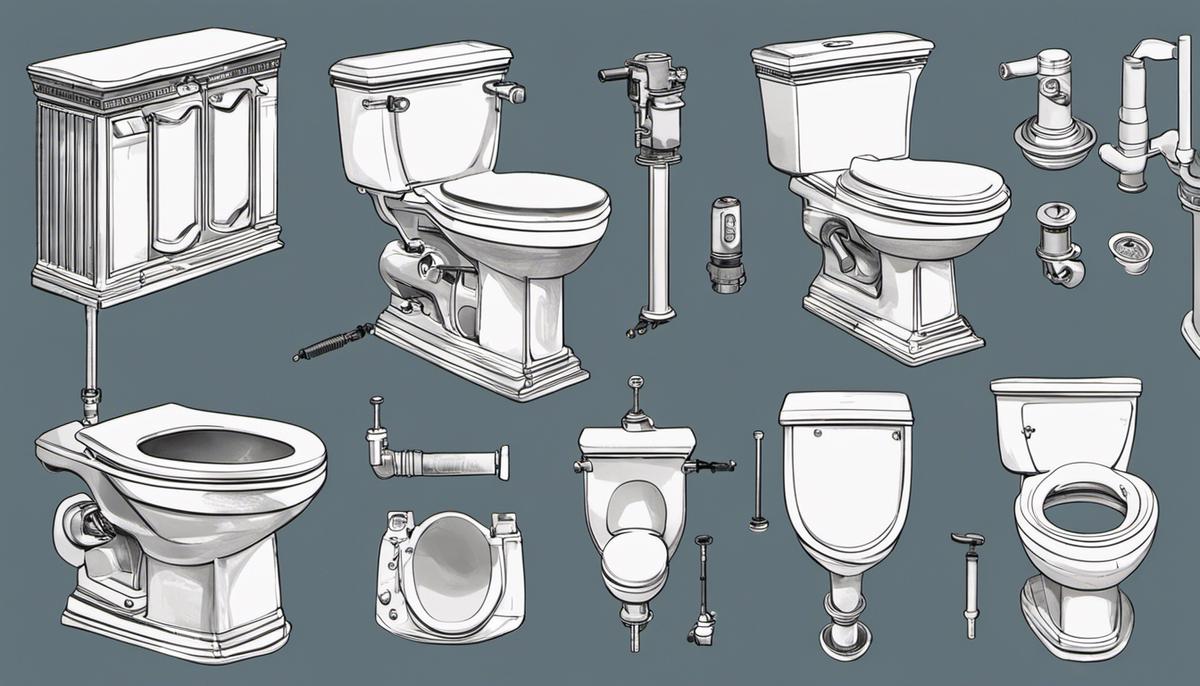
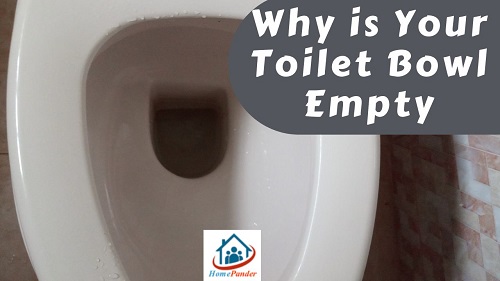
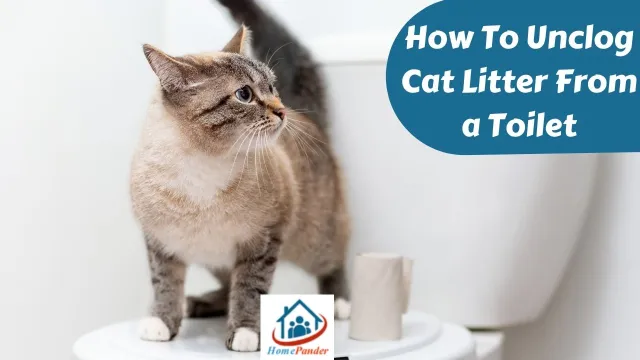
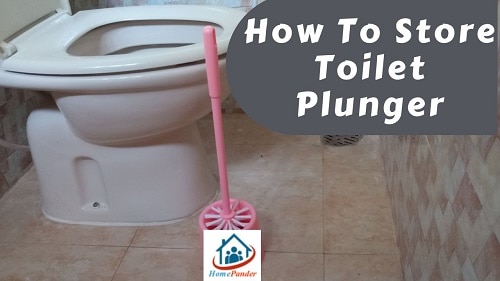
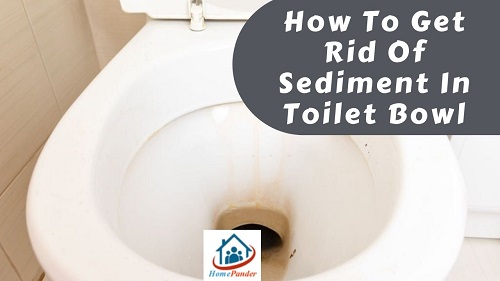
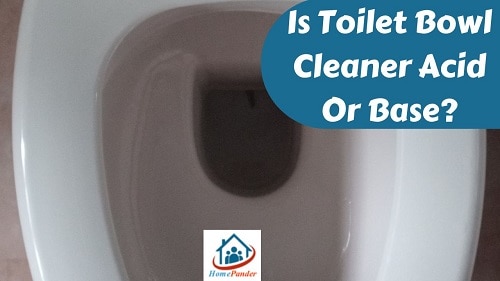
![How To Clean Dark Grout That Has Turned White [5 Easy Ways]](https://homepander.com/wp-content/uploads/2021/12/How-To-Clean-Dark-Grout-That-Has-Turned-White.webp)